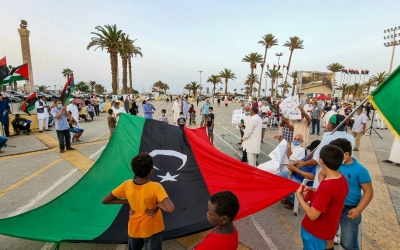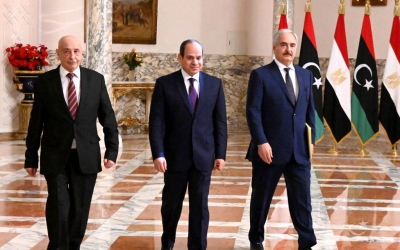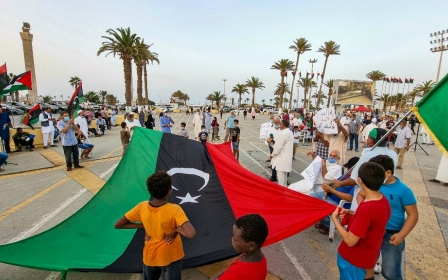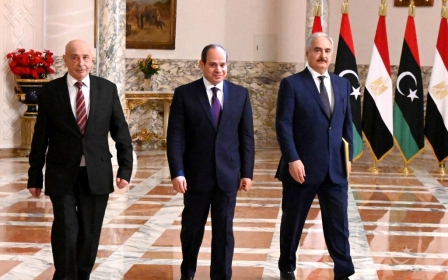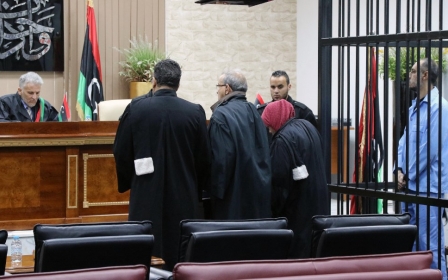Libya: Haftar steps down from military role to run for president
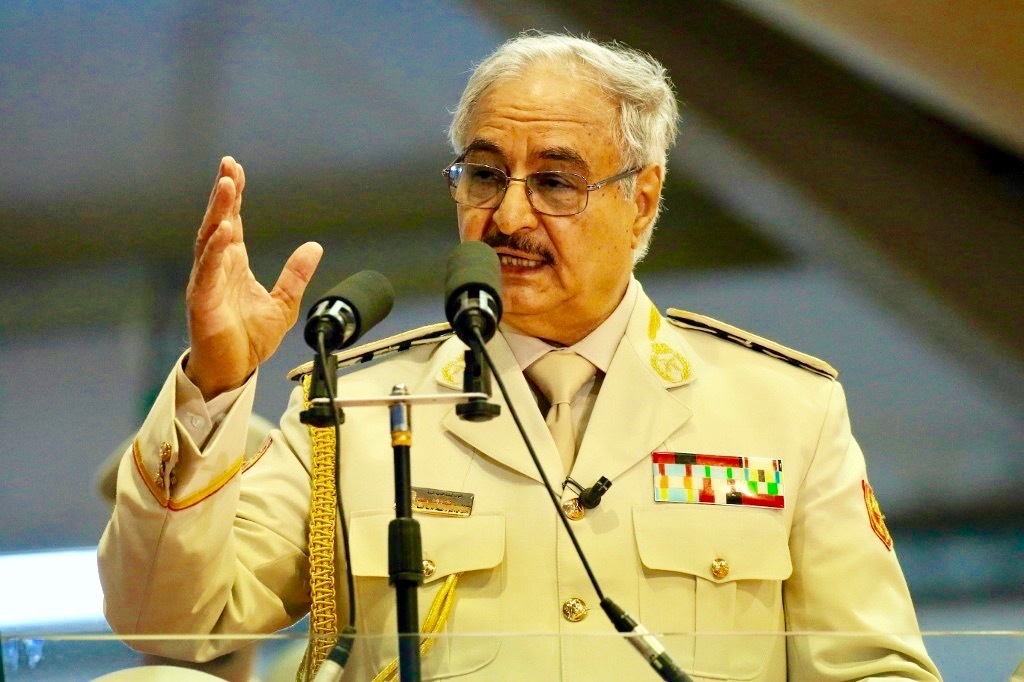
Eastern Libyan commander Khalifa Haftar paved the way to stand as president in a possible December election on Wednesday, saying he would step down from his military role for three months.
National elections have been promoted as a way to end Libya's decade-long crisis, but have been embroiled in bitter arguments over legitimacy that may unravel a months-long peace process.
Haftar heads the self-proclaimed Libyan National Army (LNA), which waged war on western factions after the country split in 2014, including a 14-month offensive to take Tripoli that was repelled last year after devastating areas of the capital.
The eastern-based LNA said in a statement that Haftar had assigned his chief-of-staff to assume his duties for three months until 24 December, the date of the legislative and presidential vote.
In the statement, the 77-year old Haftar said his replacement, General Abdelrazak al-Nadhuri, "will occupy the functions of General Commander for a period of three months", from September 23 to December 24.
Temporarily elevating his chief-of-staff to the post "appears to be the informal announcement of his intention to run for president," Libya analyst Emadeddin Badi said in a tweet.
The election was mandated last year by the Libyan Political Dialogue Forum, a UN-selected assembly that set a roadmap for peace in Libya, a major oil producer, through installing a unity government and holding a nationwide vote.
However, while the existing, eastern-based parliament approved the unity government in March, key elements of the plan have since stalled and on Wednesday the chamber said it had withdrawn confidence from Prime Minister Abdelhamid Dbeibah, Reuters reported.
Controversial clause
Earlier this month, Parliament Speaker Aguila Saleh said it had approved a presidential election law with a controversial clause that analysts said was tailored to allow him and Haftar to run for office without risking their existing positions.
The clause, passed in a vote with a small number of lawmakers present, said officials could step down three months before the election and return to their posts if they did not win. The chamber did not vote on the final version of the law.
The parliament, which was elected in 2014 and split soon afterwards into warring factions, has not yet approved a law for a separate parliamentary election, as was demanded by the UN dialogue forum.
A Tripoli-based advisory body, the High Council of State, has rejected the parliament's election law, raising the likelihood that any vote will be contested as illegal.
Germany, which has played a leading role in diplomacy to end Libya's civil war, called Wednesday for the elections to go ahead, AFP reported.
"The international community expects Libyan officials in Tripoli and the rest of the country to work for presidential and legislative elections to take place as scheduled on December 24," German Foreign Minister Heiko Maas said as he co-chaired a high-level meeting on Libya at the UN.
Maas also called for renewed efforts to remove foreign mercenaries from Libya.
The United Nations estimates there are more than 20,000 mercenaries, including Russians, Syrians, Chadians and Sudanese, as well as foreign troops, most of them Turkish, deployed in Libya.
Middle East Eye delivers independent and unrivalled coverage and analysis of the Middle East, North Africa and beyond. To learn more about republishing this content and the associated fees, please fill out this form. More about MEE can be found here.


